A media kit for influencers is a document to advertise oneself to potential companies and sponsors. It often contains details about the influencer's audience; social media reach and engagement, content and brand relationships, pricing, and collaboration availability. The media kit aims to provide marketers with an understanding of the influencer's capabilities and to assist them in making educated decisions on a potential partnership.
Influencer media packages are crucial for several reasons. First, they enable influencers to present their worth to businesses and sponsors orderly and professionally. Influencers may make it easy for companies to understand their offers and how they can fit into a possible collaboration by compiling all pertinent information in one location.
Second, influencer media kits may aid marketers in making better-informed judgments regarding influencer collaborations. By giving information about the influencer's audience and reach, companies can determine whether the influencer's audience corresponds with their target market and whether the influencer's social media following is authentic and active.
Influencer media kits may help influencers differentiate themselves from the competition and display professionalism. Influencers may demonstrate their commitment to producing high-quality content and value to their partners by assembling a professionally-designed media kit.
What to include in an influencer media kit
Here is a list of potential items to include in a media kit for an influencer:
Personal information: Name, contact information (email, phone number), social media handles, website, etc.
Audience demographics: Age, gender, location, interests, etc., of the influencer's followers. This can help brands understand who they will be reaching through the partnership. You can easily find this data from Instagram insights. They can provide some partial data. However, there are some special analytical tools like HypeAuditor. This platform allows an influencer to verify their account at HypeAuditor, and you can get access to their analytical report with all information for free.
Reach and engagement: Number of followers, likes, comments, etc., on each social media platform. This can help brands understand the influencer's overall influence and the potential reach of their content. You should also get a list of free tools to calculate ER, including the HypeAuditor ER calculator and reports.
Previous collaborations and partnerships: List brands the influencer has worked with, examples of content created for those partnerships, etc. This can help brands see the influencer's experience and how they have performed for other brands.
Rate sheet: Pricing for different types of collaborations (e.g., sponsored posts, Instagram takeovers, etc.) and any additional services the influencer can offer (e.g., event hosting, product reviews, etc.). This can help brands understand the influencer's fees and what they can expect in terms of value for their investment.
A rate sheet lists prices for the various partnerships and services an influencer offers to businesses and sponsors. It is generally included in an influencer's media kit. It is meant to offer companies an idea of the cost of partnering with the influencer and the return on investment they may anticipate.
You may choose to include the following on a rate sheet:
Different types of collaborations: Include sponsored articles, Instagram takeovers, event hosting, product reviews, and so on.
Fees for each collaboration: Clarify if the charge is for a single post or a series of postings.
Additional fees or expenses: If the influencer charges additional costs or expenditures for travel, rush fees, or unique content development, indicate them with their respective amounts.
Payment terms: Include details on how the influencer expects to be compensated, such as whether they prefer a flat sum or installments and whether they accept payment through check, bank transfer, or other means.
Contract terms: Include information on the terms of the contract, such as the duration of the partnership, the rights granted to the company, and any confidentiality or non-disclosure agreements if the influencer requires a contract to be signed to engage with a brand.
Availability: When the influencer is available to work and whether they are open to partnerships. This can assist marketers in determining the influencer's availability and whether or not they can fit the brand's deadline.
It is also good to provide links to the influencer's social media profiles or a portfolio of their material as work samples. This can give marketers an understanding of the influencer's style and the material they produce.
Media Kit Template
Here is a basic template for an influencer media kit:
Cover page: Include the influencer's name, social media accounts, and a headshot or logo.
Introduction: This section should quickly introduce and describe the influencer's specialization or specialty.
Audience demographics: This should include demographic information about the influencer's audience, such as age, gender, location, and interests.
Reach and engagement: This should contain information about the influencer's total social media reach and engagement, including the number of followers they have on each platform and their average number of likes, comments, and shares for each post.
Previous collaborations and partnerships: This section should include a list of businesses with which the influencer has collaborated and samples of content developed for those collaborations.
Rate sheet: This should include compensation for various engagements, including sponsored posts, Instagram takeovers, and event hosting. It should also mention any additional services, such as product evaluations or bespoke content production, that the influencer can provide.
Availability: This should contain details regarding the influencer's collaboration preferences and availability.
Examples of work: This could contain links to the influencer's social media sites or a portfolio of their material so that companies can get a sense of their style and the sorts of content they publish.
Contact information: This should contain the influencer's contact information, such as their email address and phone number, so that companies may easily reach them.
This is only a basic template; you can add or delete elements as necessary to meet your requirements and objectives as an influencer. Ensure that the media kit is professional, well-designed, and offers all pertinent information about your audience, reach, and cooperation options in a simple manner.
Tips for creating an effective influencer media kit
Here are some tips for creating an effective influencer media kit:
Keep it professional and well-designed: Ensure the media kit is pleasing to the eye and easy to read. Consider utilizing a professional design program like Adobe InDesign or Canva to produce the document using high-quality photographs and graphics. Or you can also use HypeAuditor - an all-in-one toolkit for modern influencer management processes.
Make sure all the information is up-to-date and accurate: Verify that all of the information in the media kit is accurate and up-to-date. This contains the influencer's biographical details, audience demographics, and social media reach and engagement.
Customize the media kit for each brand or sponsor you are pitching to: While it is essential to have a basic media kit that you can use as a starting point, you should also be prepared to tailor the media kit for each business you pitch. This might demonstrate to the brand that you are sincerely interested in collaborating with them and have considered how you can bring value to their brand.
Customizing the media kit for each company or sponsor you pitch is an excellent method to demonstrate that you are interested in collaborating with them and have considered how you can offer value to their brand. Here are some measures you can take to tailor your media kit to each brand you pitch:
Research the brand: The brand's products, services, and target demographic. This will assist you in understanding the brand and how to connect your impact and content with its values and objectives.
Tailor your introduction: At the start of your media kit, emphasize your unique qualities and worth as an influencer and describe how your content and audience connect with the brand's target market.
Customize your rate sheet: Consider offering multiple tariffs or packages based on the brand's unique requirements and objectives. For instance, you might offer cheaper pricing for a series of sponsored posts or a higher rate for a complete Instagram takeover.
Include examples of past work: Select several samples of your finest work that are pertinent to the brand's products or services. This will demonstrate to the company how well you can advertise their items and how your content connects with your audience.
Tailor your availability: If the brand has a specific schedule or scheduling requirements, your media kit should emphasize your availability and adaptability.
Make it easy for brands to contact you: Include your complete contact information, including your email address and phone number, and make it evident that you are willing to collaborate and cooperate.
Include examples of your best work and highlight your unique strengths and value as an influencer: Utilize the media kit to display your most excellent work and to emphasize your unique influencer abilities. This can assist companies in comprehending what differentiates them from other influencers and how they can provide value to their brand. Here are some suggestions for doing so:
Select your best work: Select a few representative samples of your finest work related to the business or sponsor you are pitching. This may include sponsored posts, Instagram takeovers, and other original material.
Highlight your unique strengths: Explain what differentiates you from other influencers in your media kit and how you can bring value to the brand's target audience. For instance, you may have a specific skill or passion that matches the brand's products or services or a distinct style or perspective that makes your work stand out.
Include metrics: Include analytics such as likes, comments, and shares alongside your finest work to demonstrate the engagement and reach of your material. This helps the brand comprehend the worth it can deliver to its brand.
Use images and graphics: Utilize high-quality photographs and graphics to display your work and provide aesthetic appeal to the media kit. This might assist the company in visualizing how your content will integrate into its marketing efforts.
By following these steps, you can tailor your media kit to demonstrate to the company how you can bring value to their brand and why you are the ideal partner. This might boost your likelihood of getting a partnership with the brand.
Influencer media kit tools
Several tools can help you create an influencer media kit, including:
Adobe InDesign: InDesign is a professional design application that enables you to generate documents of professional quality, such as media kits, brochures, and presentations. It can import and alter photos, build individualized layouts, and add text and graphics.
Canva: Canva is a user-friendly graphic design application that provides various templates and design components for creating media kits and other documents with a professional appearance. It is straightforward to use and provides a variety of pre-made themes and design features, making it particularly beneficial for influencers with fewer design skills.
Google Slides: It is a presentation program included as part of the free, web-based Google Docs Editors suite offered by Google. With it, you can create simple and visually stunning presentations to demonstrate your research or reports.
HypeAuditor Media Kit tool: Craft compelling media kits that can quickly and easily be distributed to brands, agencies, and potential clients. Ensure that partners know what they’re getting when they collaborate with you. Provide information about your previous performance, such as key metrics, past successes, client testimonials, and more.
Regardless of the technology you select, you must ensure that your media kit is professional and well-designed and that it clearly and succinctly offers all the essential information about your audience, reach, and cooperation opportunities clearly and succinctly.
Conclusion
A well-crafted influencer media kit is essential for several reasons. First, it enables influencers to present their worth to companies and sponsors in an orderly and professional manner. Influencers may make it easy for companies to understand their offers and how they can fit into a possible collaboration by compiling all pertinent information in one location.
Second, influencer media kits may aid marketers in making better-informed judgments regarding influencer collaborations. By giving information about the influencer's audience and reach, companies can determine whether the influencer's audience corresponds with their target market and whether the influencer's social media following is authentic and active.
Influencer media kits help influencers differentiate themselves from the competition and display professionalism. Influencers may demonstrate their commitment to producing high-quality content and value to their partners by assembling a professionally-designed media kit.
Influencers must take the time to develop a media kit that appropriately represents their audience, reach, and impact. This might assist them in attracting the interest of businesses and sponsors and forming fruitful relationships. In addition, influencers should be prepared to adapt their media packages for any business or sponsor they pitch and explicitly define their fees and cooperation availability. Influencers may successfully sell themselves and their work to potential partners and develop successful careers as influencers by adhering to these guidelines.








